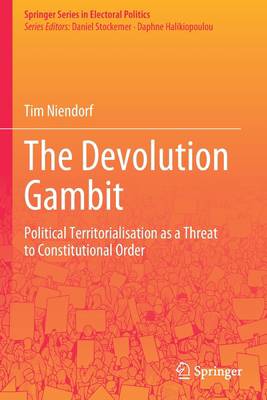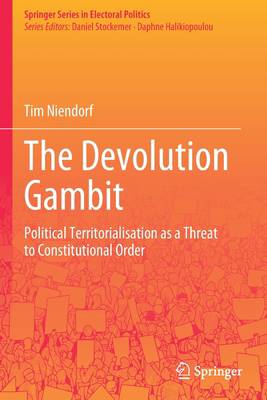
- Retrait gratuit dans votre magasin Club
- 7.000.000 titres dans notre catalogue
- Payer en toute sécurité
- Toujours un magasin près de chez vous
- Retrait gratuit dans votre magasin Club
- 7.000.0000 titres dans notre catalogue
- Payer en toute sécurité
- Toujours un magasin près de chez vous
Description
This book examines the increasing territorialisation of party competition and the relaxation of unitarian rule through devolution, presenting a long-term analysis of electoral developments in the United Kingdom since the end of the Second World War.
Subsequently, the book looks into the undermining of the traditional majoritarian mode of British government as a result. It analyzes the significant role of these long-term developments and their detrimental effect on the parliament's ability to resolve issues like the Scottish Independence Referendum or the UK's vote to leave the European Union, and it addresses their underlying causes. The author additionally reconnects these electoral developments to the changing nature of devolution and shows how the deepening of devolution accelerates the negative electoral consequences for the British system of government. Finally, the book shows why the British Labour Party is turning more and more into a long-term minority party as a result of these developments.
The book is a must-read for scholars, students and policy-makers, interested in a better understanding of comparative politics and devolution in general, as well as in the more specific case of the United Kingdom's electoral system.
Spécifications
Parties prenantes
- Auteur(s) :
- Editeur:
Contenu
- Nombre de pages :
- 183
- Langue:
- Anglais
- Collection :
Caractéristiques
- EAN:
- 9783030725259
- Date de parution :
- 21-05-22
- Format:
- Livre broché
- Format numérique:
- Trade paperback (VS)
- Dimensions :
- 156 mm x 234 mm
- Poids :
- 285 g

Les avis
Nous publions uniquement les avis qui respectent les conditions requises. Consultez nos conditions pour les avis.






